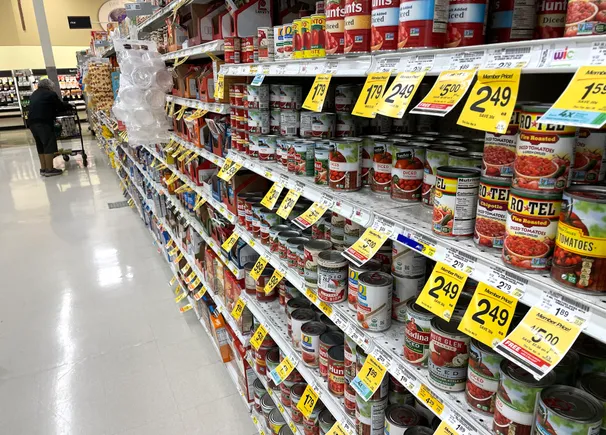The recent implementation of a 25% tariff on aluminum and steel imports in the United States has sparked concerns among metals-dependent trade groups. These groups are now calling on the Trump administration for exemptions to alleviate the potential negative impacts of these tariffs.
Robert Budway, president of the Can Manufacturers Institute, expressed his concerns about the inflationary impacts that consumers may experience as a result of these tariffs. He highlighted the detrimental effects of trade protectionist measures on the U.S. economy and domestic food security. Budway emphasized that the tariffs on aluminum and steel imports would increase the cost of critical production materials, making U.S.-made food products less competitive against foreign imports.
The Can Manufacturers Institute revealed that the domestic can industry produces approximately 135 billion food, beverage, aerosol, and general line cans each year, employing over 28,000 individuals. Since the tariffs were imposed in 2018, U.S. tin mill steel producers have shut down nine tin mill lines, leaving only three domestic production lines operational. This shortage of domestic production capacity has led to increased competition from cheaper foreign canned food products, particularly from China.
On the aluminum front, the Aluminum Association highlighted the industry’s significant investments of over $10 billion since 2016, focusing on mid-and-downstream production and recycling. The association stressed the importance of long-term market certainty and a reliable supply of affordable metal, much of which comes from Canada. Canada currently supplies about two-thirds of the primary aluminum used in the U.S., emphasizing the critical trade relationship between the two countries.
In a letter addressed to President Trump in February, the Can Manufacturers Institute, along with American canned food producers and packaging companies, called for exemptions from the tariffs to protect their industries from further harm. The ongoing trade tensions have also impacted other countries, with the EU considering counter-action on steel and aluminum products, while Canada and Mexico have enacted tariffs on U.S. steel and aluminum products.
As the trade disputes continue to unfold, stakeholders in the steel and aluminum industries are closely monitoring the situation and advocating for solutions that will mitigate the adverse effects of these tariffs on their businesses and the broader economy.


